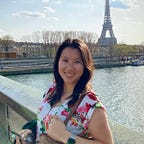Why does it feel like Diversity, Equity & Inclusion (DEI) work is getting harder?
Hint: Because it is.
In 2018, I was part of a small group that founded the first Diversity, Equity & Inclusion (DEI) initiative at our company of over 2,000 people. We spent the first six months ensuring we had leadership buy-in and sponsors by selling the business case and ensuring a widespread awareness. Once the organization was on board, over the next couple of years we worked with fervor to implement program after program in line with the leading recommendations of the field: creating employee resource groups, tracking metrics, reviewing compensation gaps, addressing bias in performance reviews, updating recruiting processes, training and mentorship.
It was exhausting but incredibly rewarding. We could see people were engaged, excited, and understood the benefits of Diversity, Equity & Inclusion.
Yet as the months and years passed by, the metrics we were so enthusiastically tracking didn’t improve. Our programs were standing on their own, but it also felt like it was the same people who were engaged. Over time, motivation began fading. It was disheartening.
Many companies are finding themselves in this position. But it is a critical point to ensure that the momentum gained is not lost. Deloitte’s diversity & inclusion maturity model outlines this point as a pivotal transition point. This is when DEI efforts must move from a mandate to a movement, otherwise progress wanes.
Why is this a critical transition point and why does it feel so much harder? Because it means that all leaders, and ultimately everyone at the organization, must step up and make it part of their own imperative to address challenges.
Asking a business to evaluate their practices for a clear business case is relatively easy. Asking each individual to evaluate their own behaviors and make things personal is much harder.
To do so, we must recognize that we do this work not only because it is the right thing to do, but because our struggles are all inextricably tied. In different ways, we are all victims of systemic oppression. The same system that tells me that I need to be the main caregiver, diminishes men when they express their emotional vulnerability.
“Injustice anywhere is a threat to justice everywhere. We are caught in an inescapable network of mutuality, tied in a single garment of destiny. Whatever affects one directly, affects all indirectly.” — Martin Luther King Jr.
Asking the hard questions of ourselves
We all have a critical role in upholding or dismantling these systems. We are called upon to have the courage and humility to do our own self-examination.
Shawn Ginwright likens this to the the difference between using a lens and a mirror in his book The Four Pivots: Reimagining Justice, Reimagining Ourselves. A lens is used to examine the external world, helping us understand how the social structures of the patriarchy, sexism and homophobia affect the world. Many of us are familiar with using a lens to view the world, but it fails to help us process how it actually feels to be a part of these systems.
What we can do is hold up a mirror to examine ourselves. We are all hurt and feel shame from contributing to and experiencing systems of oppression. Mirrors are great because they reflect ourselves back to us without any judgement. And the only way to truly move through our hurt and shame is to reflect on and acknowledge them without judgement. Then we can choose how we want to show up in the world without carrying the heavy burden of suppressed insecurities and fears.
When did you last spend time in self-reflection and were mindful about how you may have contributed to the very problems you are trying to solve? It is something we rarely do, because it is really hard. So we put on these lenses to protect ourselves, but in the end it distances ourselves from our own humanity.
We must create space for a critical examination of our own history, privileges, biases and willingness to make sacrifices. This is the only way we find our way back to ourselves and each other.
- When I react defensively to someone with a different viewpoint, what internalized pain is it striking?
- How have I benefited from and contributed to systems of systemic oppression? How have I been complicit?
- What am I willing to trade off for a more diverse, equitable and inclusive future? What am I not willing to trade off?
“We have an obligation to understand our privileges because we have a responsibility to understand the repercussions of our ignorance; at the same time, we also have an obligation to understand the opportunities we have… Privileges can be weaponized in ways that cause destructive harm… [they are how] systems of oppression operate through us… but they can also be a strategic tool used to advance equity and justice.” — Michelle MiJung Kim
What does this mean for organizations?
In organizations, we have a tendency to value hustle culture and action over reflection. But doing so doesn’t afford us the time to lean into the discomfort and uncertainty of our own stories.
We need to facilitate this examination in organizations by engaging in bold, inclusive conversations in safe spaces and carving out the necessary time to explore these complex questions. Doing so will allow us to connect in new ways and create a culture that puts each other and our shared humanity first.
This may be the most difficult work yet. But in the end, it may be the most rewarding and meaningful as well. We can acknowledge and heal our own hurt and shame. We can find and honor the shared humanity in each other.
We can recognize that we each have our own part to play in the advancement of society as a whole. And we get there by owning that responsibility. All of us. Together.
